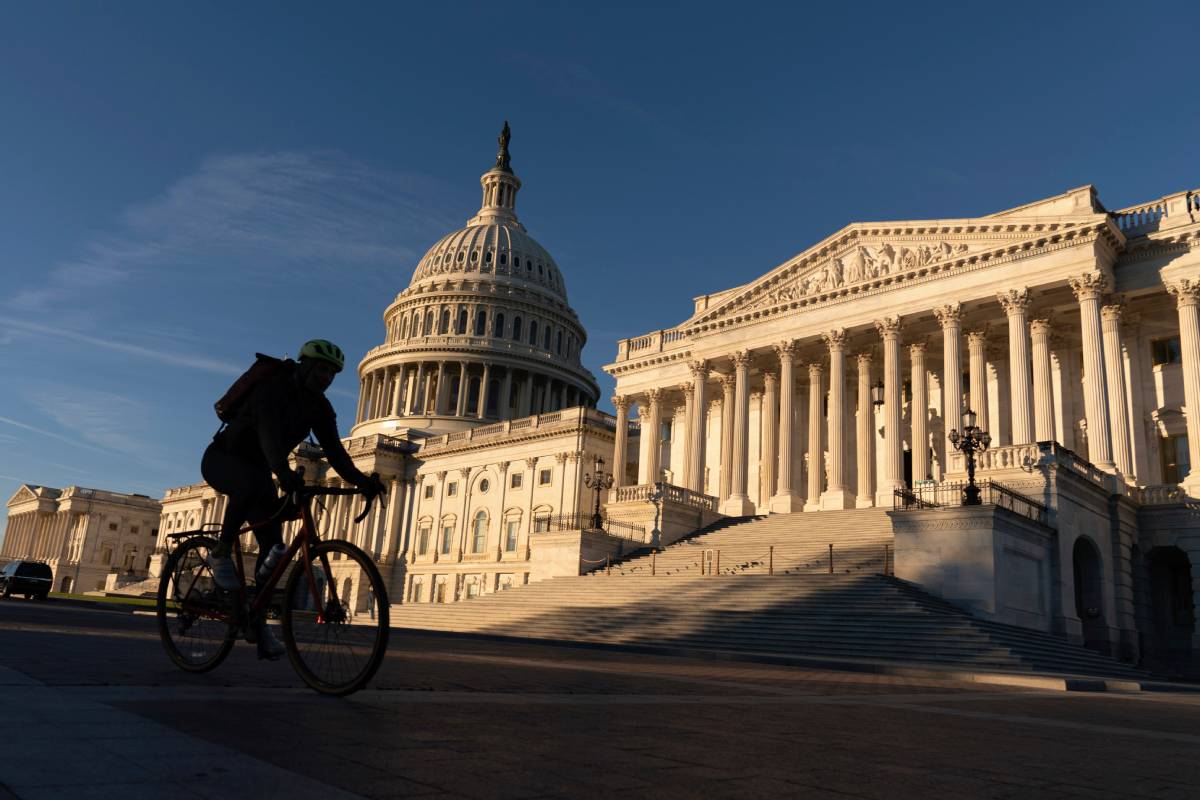
Members of Colorado’s Congressional delegation are split over a White House attempt to claw back almost $9.4 billion in congressionally approved spending.
The rescissions package would codify some of the proposed cuts by the Department of Government Efficiency, as well as cut funds to foreign aid and public media.
The package only needs a simple majority to pass both the House and the Senate, allowing Republicans to bypass Democrats, but they do have a deadline: there will be just a 45-day window to pass the package.
Colorado Republicans are largely supportive of codifying the cuts, which House leaders are expected to bring to the floor next week, while Democrats are not.
“Congress must act as soon as possible,” GOP Rep. Lauren Boebert wrote on social media. In an earlier post, she said, “The American people demand DOGE cuts be codified into law! This is why we were given a majority in the first place. This must be priority number one going forward. No excuses!”
Boebert, like many House Freedom Caucus members, has been calling on her chamber to sign off on the cuts, some of which line up with her long-standing priorities. During her time in office, Boebert also offered bills and amendments to cut foreign aid or support for international organizations like the World Health Organization.

The House Freedom Caucus said in a statement, “These first DOGE cuts target taxpayer-funded public broadcasters notorious for their liberal bias, like NPR and PBS, as well as billions in wasteful foreign aid dollars. Passing this rescissions package will be an important demonstration of Congress’s willingness to deliver on DOGE and the Trump agenda.”
Colorado Public Radio, along with NPR and two other public radio stations in the state, are suing the Trump administration over an executive order barring stations from using Corporation for Public Broadcasting money to pay for programming from NPR and PBS. That order is separate from this defunding effort.
GOP Rep. Jeff Hurd was still going through the details Wednesday morning, but said he was inclined to support the bill. “This is something that — I know we’ve talked as a conference about the importance of spending responsibility and I think this is a step in the right direction.”
That echoed GOP Rep. Jeff Crank’s stance on the package. He, too, is still looking into all the details. “However, I am supportive of codifying the reforms made by DOGE, and I look forward to seeing what else the White House sends over,” he said via email.
“We’re still looking it over,” said GOP Rep. Gabe Evans Wednesday morning as he was heading into the House Republican meeting. “We’re going to vote with the district in mind, and like I said, we’re still looking it over.”
Much of the package, more than $8 billion, seeks to codify cuts to education and transportation programs, as well as foreign aid and U.S. contributions to international organizations, such as the United Nations, the WHO, the United Nations Children’s Fund (UNICEF) and PEPFAR, an U.S. global initiative to address HIV/AIDs, launched by former GOP President George W. Bush.
It also tries to get back more than $1 billion allocated for the Corporation for Public Broadcasting to help fund NPR and PBS member stations, as well as the networks, in FY26 and FY27. (Colorado Public Radio receives CPB funding.)
“I’m going to fight that,” said Democratic Sen. John Hickenlooper. “I think that that money was committed, a lot of people and organizations structure their budgets and hired people and plan their year based on that being delivered. The federal government should be able to stand behind its word. We gave our word.”

Other Democrats, like Rep. Brittany Pettersen and Rep. Joe Neguse, also oppose the cuts.
Neguse said it would be “a reckless proposal for the Congress to approve.”
“It would gut core programs like public radio, by way of example, that keep Americans well-informed of the issues of the day. It includes a number of rescissionary cuts that would implicate our standing in the world, with respect to foreign programs that provide us the ability to lead on the international stage,” Neguse said.
Democratic Rep. Jason Crow said the rescissions are a “stark abandonment” of American leadership in the world.
“I know that America is at our best when we lead by example and meaningfully engage with our friends, allies, and partners around the world. I support efforts to make government more efficient, but taking a sledgehammer to programs that promote democracy and advance America’s interests makes us less safe and more isolated on the global stage,” he said in a statement.
Democratic Rep. Diana DeGette does see one positive about the package.
“The Trump Administration now realizes that they need to come to Congress if they want to take back some of the money that Congress has already appropriated,” she said. “Having said that, this bill is devastating. It’s going to kill children in foreign countries because of the cuts to foreign aid.”
Recissions have been difficult to pass previously because lawmakers have usually rejected attempts by the executive branch to alter or prevent spending as directed by Congress, which holds the power of the purse.
The last time it was used was during the final year of the Clinton Administration.
The first Trump Administration tried to pass a rescissions package in 2018. It passed the House but failed to get to a simple majority in the Senate.









